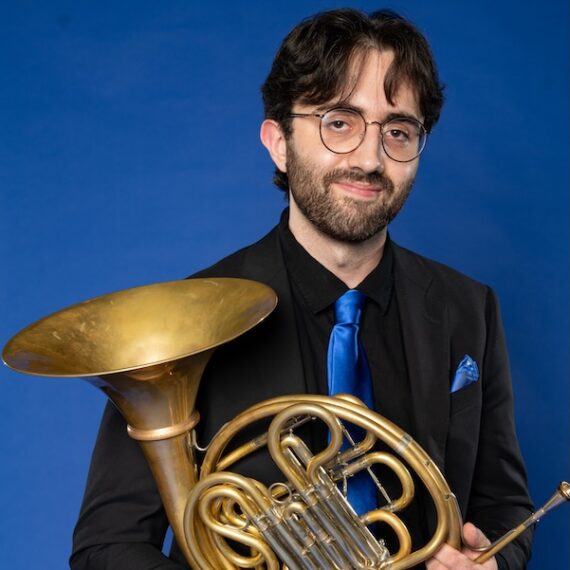Appearances
Domaine Forget, Saint Irénee, Quebec, 2018–19; Curtis Summerfest, Philadelphia, 2017
What is your earliest memory of classical music?
I think it’s watching an animated rendition of Peter and the Wolf with my grandparents. My grandmother played the bassoon and was very excited to point out all of the solos.
Was there a teacher who was particularly impactful/helpful? What made this instructor stand out?
The first teacher that I started taking lessons with in middle school left a really beneficial impact on my life and musicianship. She really made me realize the amount of work that’s required, even at that early stage, while also making the transition to taking music seriously very enjoyable.
What made you decide to become a musician? Was there a particular performance or person that influenced your decision?
I think for me it’s a lot of different moments that made me want to be a musician, but in particular was when I started playing chamber music. This was at a summer festival that I went to in middle school where I played the Reinecke Oboe Trio, a great piece that is still a favorite. After that experience I was pretty much hooked.
How did you hear about TŌN? What inspired you to apply?
I attended Bard for my undergraduate studies, so I’ve known about TŌN for a while. Having a more professional workload while also having the emphasis be on your own improvement was the main draw for me.
How would you like to see orchestra concerts evolve in the future?
I would definitely like to see orchestras become more of an inviting place for newcomers. I think there is a preconceived notion that classical music requires a certain type of knowledge in order to truly appreciate it. Orchestras working against this attitude to invite new concert-goers could only benefit the industry.
What is the most memorable performance you ever had?
The first time that I played in an orchestra has stuck with me. It was a performance of Sibelius’s Symphony No. 2 at a summer festival. I probably missed half of the notes but it still means a lot to me.
Tell us about a time you almost gave up but didn’t.
I was the closest to quitting right after I finished with my undergraduate studies. It was a real fork in the road for me and I was thinking of taking a gap year and then going to law school. Talking it over with my teacher, my parents, and my friends (some musicians, some not), I realized that I couldn’t give it up. I’m not sure if I’ll end up being a sitting orchestra member as a career, but I certainly know that if I stopped playing at that moment I would have regretted it forever.
Can you share any memorable onstage mishaps?
Horns get asked to raise their bells in the air, which can make seeing the conductor difficult depending on where you’re sitting. I forget the piece, but there was a held rest where the horns have their bells up waiting to play. I couldn’t see the conductor clearly but I thought he gave a cue which, of course, he hadn’t. I played that wrong entrance as loud as I could by myself.
Do you have a favorite non-classical musician or band?
Pulp, Weezer, Deftones, and ABBA are a few standouts
If you weren’t a musician, what would you be doing?
I think probably either practicing law or teaching either law or philosophy.
What is a surprising part of playing your instrument that you think most people don’t know?
Probably how similar the horn and brass playing is in general to singing. Talking to some singer friends there are a lot of shared ideas.
What is the biggest challenge and/or surprise about playing in an orchestra?
One of the biggest challenges I think is treating music that you don’t like with the same respect and effort as music that you love. Horn parts can sometimes be really boring, but trying to find something interesting or something to learn from is always a benefit.
What advice would you give your younger self or anyone starting out?
To not be so afraid to make mistakes, to take more risks in performance, and to have more confidence in the work you’ve done.



